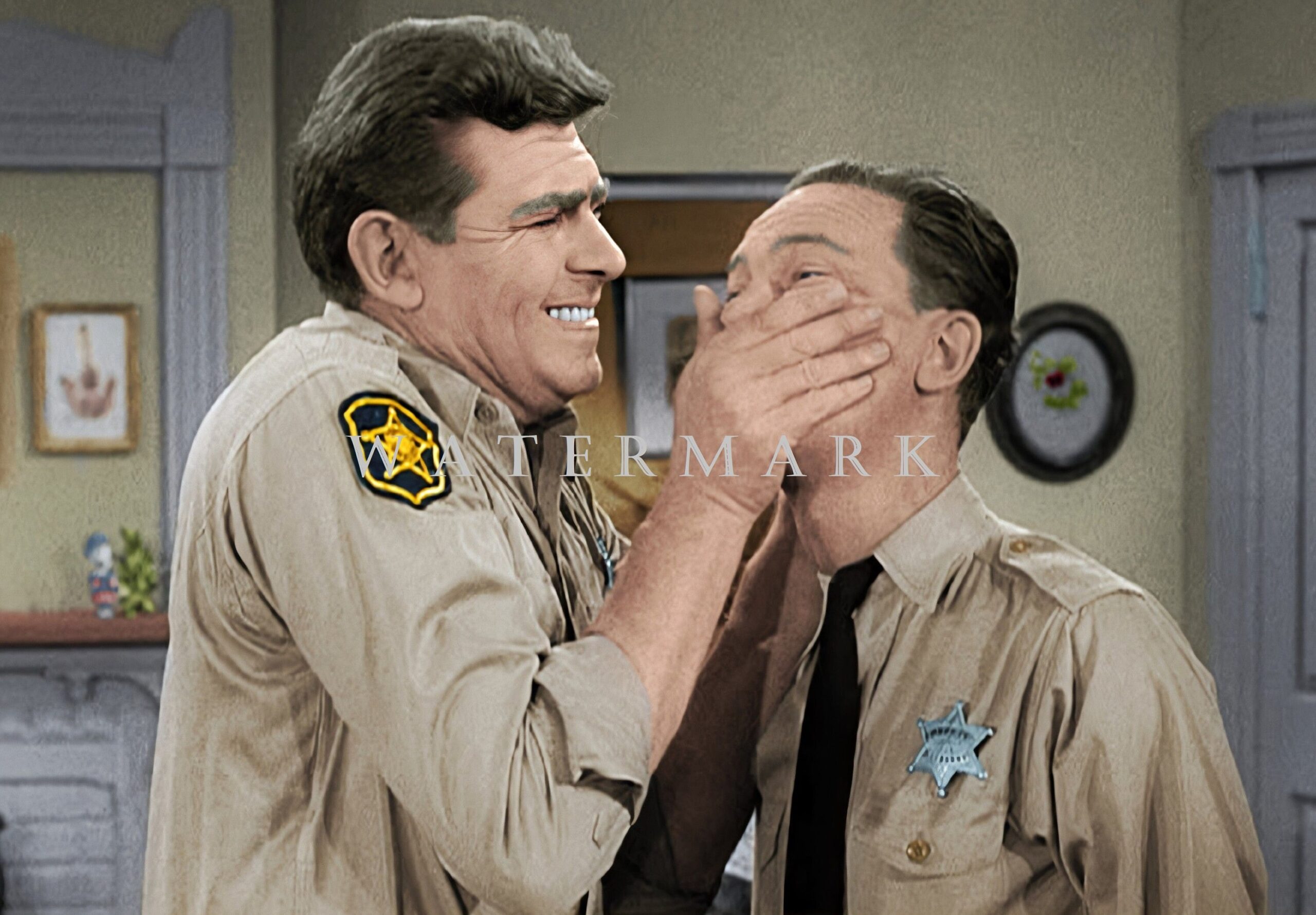
Introduction
When you hear the gentle whistle of The Andy Griffith Show’s opening theme, it’s like being wrapped in a quilt sewn by your grandmother. It’s warm, it’s familiar, and it transports you to a simpler time—at least, that’s the illusion. But beneath Mayberry’s charm lies a complexity that many fans, myself included, can’t ignore. Loving this show while recognizing its flaws can feel like walking a tightrope between nostalgia and reality. And you know what? That’s okay.
Let’s explore why it’s perfectly normal—and even healthy—to feel conflicted about one of America’s most beloved TV classics.
A Timeless Comfort — And Why It Works So Well
Mayberry’s Magic
Part of the show’s lasting appeal comes from its almost mythic portrayal of small-town life. The streets are safe, neighbors know each other, and problems are usually solved with a slice of pie and a firm talk from Sheriff Andy. It’s television comfort food—reliable and satisfying.
The Power of Andy’s Wisdom
Andy Taylor wasn’t your typical TV lawman. He rarely pulled a gun; instead, he relied on patience, humor, and plain old common sense. For many, he became the father figure they wished they had.
The Problem With Perfect Mayberry
The Whitewashed Reality
Here’s the hard truth—Mayberry never reflected the real America of the 1960s. Civil rights protests, the Vietnam War, and political unrest existed, but you’d never know it from the show. The absence of diversity and social conflict is striking, especially when viewed through a modern lens.
Gender Roles That Feel Outdated
Women in Mayberry were often limited to roles as homemakers, teachers, or sweethearts. While Aunt Bee was beloved, she represented a narrow vision of womanhood that feels dated today.
Why That Discomfort Matters
Nostalgia Isn’t Neutral
Nostalgia can be a beautiful thing, but it can also gloss over uncomfortable truths. When we idealize the past without acknowledging its shortcomings, we risk creating a false picture of history.
Room for Both Love and Critique
Enjoying the show doesn’t mean you’re blind to its flaws. In fact, being able to see both sides—charm and shortcomings—is a sign of deep engagement with media.
The Role of Escapism
Mayberry as a Safe Harbor
For many viewers, The Andy Griffith Show wasn’t about reflecting reality—it was about escaping it. During turbulent times, audiences found comfort in a world where the biggest problem was Opie accidentally breaking a window.
When Escapism Becomes Avoidance
But there’s a fine line between healthy escapism and avoidance. Pretending the real world’s problems don’t exist isn’t the same as taking a break from them.
Andy Griffith’s Own Relationship to the Show
Griffith’s Personal Reflections
Andy Griffith himself admitted the show was never meant to mirror real life. It was designed to be timeless and gentle—a deliberate contrast to the headlines of the day.
The Cast’s Mixed Feelings
Some cast members loved the experience; others struggled with typecasting or creative limits. That behind-the-scenes complexity mirrors the mixed emotions fans feel today.
Why Modern Viewers See Mayberry Differently
Cultural Shifts in Media
Today’s TV audiences expect more realistic representation. We’re used to seeing diverse casts, complex storylines, and acknowledgment of social issues.
The Lens of Time
When you watch an old episode now, you’re bringing decades of cultural awareness with you. That can make certain aspects of the show stand out in ways they didn’t to 1960s audiences.
Reconciling the Two Sides
Holding On to the Good
You can still appreciate Andy’s wisdom, Barney’s bumbling charm, and the gentle humor without ignoring the show’s blind spots.
Acknowledging What’s Missing
Recognizing what’s absent—be it diversity, realistic portrayals of women, or engagement with the era’s real struggles—allows for a more honest relationship with the show.

The Importance of Media Literacy
Teaching Critical Viewing
If you share The Andy Griffith Show with younger generations, talk about what it gets right and what it leaves out. That way, they can enjoy it while understanding its context.
Separating Fiction From History
Mayberry isn’t a historical document—it’s a carefully constructed fantasy. Keeping that in mind prevents the “good old days” myth from overshadowing reality.
When Mayberry Feels Like Home
The Emotional Connection
Even knowing all this, the show still holds a special place for many. The whistled theme, the slow pace, the familiar characters—it all taps into something deeply comforting.
Shared Memories
For families, watching together can be a bonding ritual, connecting generations over a shared love of Sheriff Andy and his friends.
When It’s Time to Step Back
Over-Romanticizing the Past
If you find yourself wishing life was “just like Mayberry,” it’s worth asking whether you’re idealizing something that never really existed.
Finding New Stories to Love
You can expand your viewing list to shows that capture community spirit while offering more authentic representation.
Balancing Love and Honesty
At the end of the day, it’s okay to feel conflicted about The Andy Griffith Show. You can love it for its heart while acknowledging the ways it falls short. That’s not hypocrisy—it’s maturity.
Conclusion
The Andy Griffith Show endures because it taps into something we all crave—kindness, community, and simplicity. But its charm comes with caveats. By embracing both the warmth and the flaws, we honor not just the show’s legacy but also our own growth as viewers. Mayberry might be fictional, but the lessons we take from it—both good and bad—are very real.
FAQs
1. Why do people still watch The Andy Griffith Show today?
Because it offers timeless humor, relatable characters, and a comforting escape from modern chaos.
2. Was Mayberry based on a real town?
Yes, it was inspired by Andy Griffith’s hometown of Mount Airy, North Carolina, though the TV version was an idealized version.
3. Did the show ever address real-world issues?
Rarely. It intentionally avoided political and social conflicts to maintain its timeless appeal.
4. Is it wrong to enjoy the show despite its flaws?
Not at all. Loving a show while acknowledging its limitations is a balanced and thoughtful approach.
5. How can parents share the show with kids today?
By watching together and discussing both the positive values and the historical context, making it a learning experience as well as entertainment.